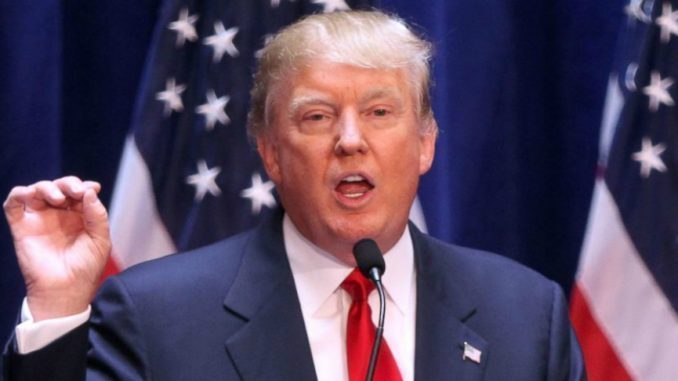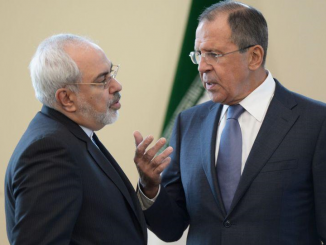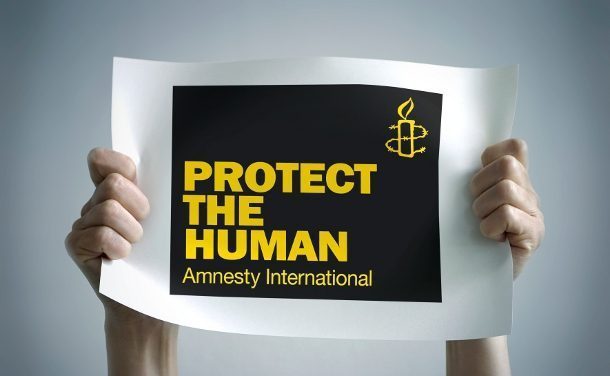
Iraq’s Prime Minister has asked U.S. President to lift the ban on people from his country traveling to the United States, in the first phone call between the two leaders according to Iraqi and US sources.
Trump initiated the call with Haider al-Abadi, which came amid public debate over the president’s executive order banning travel into the United States from a number of countries, including Iraq.
The White House said Trump used the call “to underscore the support of the United States for the Iraqi people in our shared fight against the terrorist group the Islamic State of Iraq and Syria (ISIS).”
“President Trump emphasized the buildup of the United States military,” the White House said. “President Trump also congratulated Iraqi forces on their recent progress in Mosul, thanked Prime Minister al-Abadi for his leadership, and expressed condolences for the many Iraqi lives lost in the counter-ISIS campaign.”
The White House added: “The two leaders discussed the strong partnership between the Iraqi and United States militaries, as well as the great sacrifice by both countries. Both leaders spoke to the threat Iran presents across the entire region. They also reaffirmed their commitment to the long-term partnership between the United States and Iraq grounded in the U.S.-Iraq Strategic Framework Agreement.”
Al-Abadi used this chance to ask Trump to lift the travel ban, according to the Iraqi government statement.
“Mr. Trump stressed the importance of coordination to find a solution to this issue as soon as possible and that he will direct the U.S. State Department in this regard,” the government said.
Abadi resisted calls from influential pro-Iranian Shi’ite politicians to retaliate against the ban when it was first announced by Trump at the end of January, citing Iraq’s need for U.S. military support in the war on Islamic State.
Trump told Abadi: “we will work together to defeat terrorism because Iraq is an ally of ours,” according to the Iraqi statement. “Dr. Abadi confirmed Iraq’s desire to strengthen relations with the U.S. at various levels,” the statement added.
However, Iraq’s request might not be fully answered as requested, as Trump is still fighting to implement his order or to at least to declare a modified version of it.
Trump travel ban
Donald Trump has signed in January an executive order that will limit immigration and refugees from some Muslim-majority countries, fulfilling a campaign-trail promise to introduce what he dubbed “extreme vetting.”
The order bans Syrian refugees, claiming they are “detrimental” to the interests of the United States, and suspends the refugee admissions program for all countries for 120 days. It will also suspend the issue of visas to nationals of countries where the US believes they do not provide enough information on an applicant to decide whether or not they are a security or public safety threat.
Those countries were Iran, Iraq, Libya, Somalia, Sudan, Syria, and Yemen.
“I’m establishing new vetting measures to keep radical Islamic terrorists out of the United States of America. We don’t want them here. We want to ensure that we are not admitting into our country the very threats our soldiers are fighting overseas,” he said in a speech at the Pentagon.
A federal judge in Seattle last week issued a temporary restraining order (TRO) putting the president’s travel ban on hold.
On Thursday, an appeals court said the administration failed to offer “any evidence” to justify the ban, which the president says is crucial to keep the US safe from terror attacks.
Trump has said in response that he has “no doubt” his administration will win legal challenges to his travel ban, and his administration said they were planning to escalate the legal dispute to the Supreme Court.
“Every single court option is on the table, including an appeal of the Ninth Circuit decision on the TRO to the Supreme Court, including fighting out this case on the merits,” White House Chief of Staff Reince Priebus said.
“And, in addition to that, we’re pursuing executive orders right now that we expect to be enacted soon that will further protect Americans from terrorism.”
Trump could rewrite the order to explicitly exclude green card holders, or permanent residents, said a congressional aide familiar with the matter who asked not to be identified. Doing that could alleviate some concerns with the original order expressed by judges in the 9th Circuit court.
A new order, however, could allow Trump’s critics to declare victory by arguing that it would the first time he was forced to change course.



